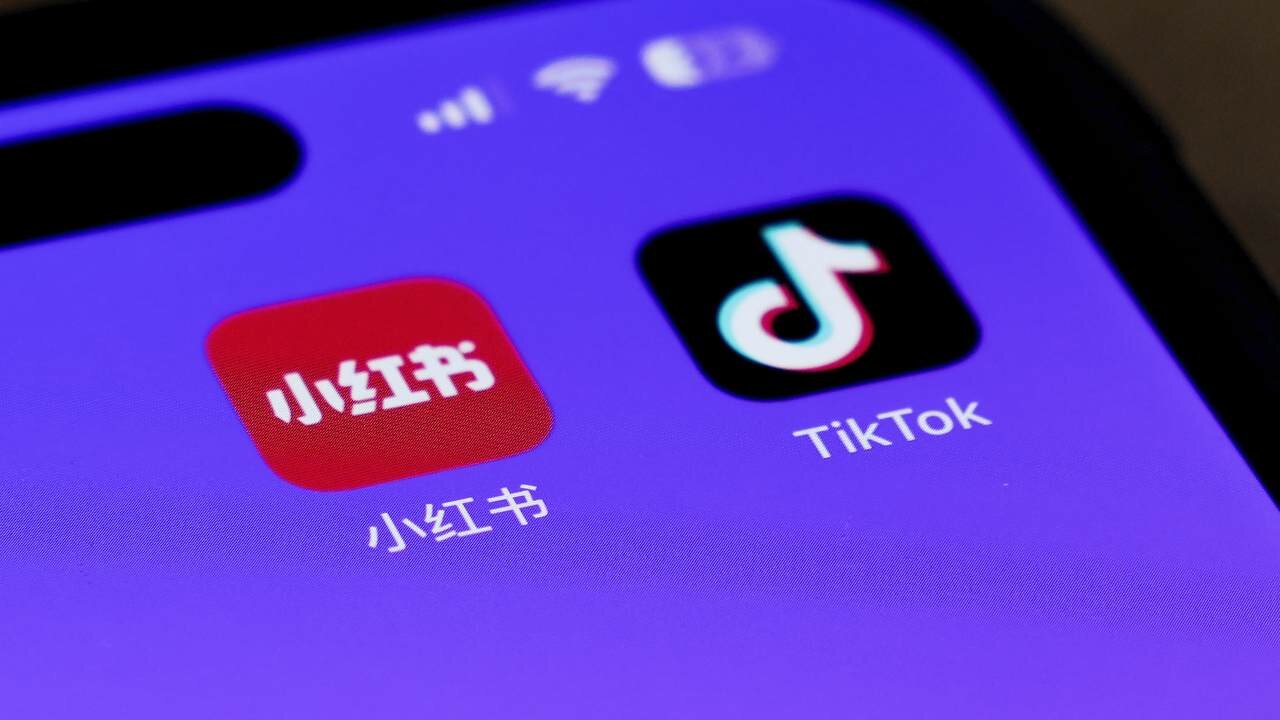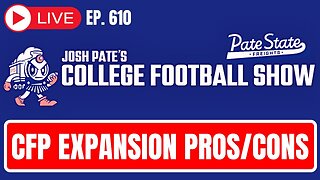Premium Only Content

Supreme Court Upholds TikTok 'Ban'
Posted • January 17, 2025: For legal nerds, the hits keep coming today. First, Joe Biden took the dictatory step of trying to declare that the Equal Rights Amendment is now officially part of the Constitution. Next CNN is declared liable in its huge defamation case, as covered by Sam J. Last we heard, they are arguing about punitive damages, because that is still left for the jury to determine. And in addition to that fun, we find out that the Supreme Court has upheld the so-called TikTok ‘ban.’ For starters, here’s the decision: U.S. Supreme Court Upholds TikTok Ban (27 pages) https://www.supremecourt.gov/opinions/24pdf/24-656_ca7d.pdf -- The entire file is only twenty-seven pages, with two concurrences. A concurrence is basically when a justice says that they agree with the ultimate bottom line but either they have different reasons for reaching that conclusion, or they just wanted to add something to the analysis of the majority opinion.
Also, if you choose to read the majority opinion, you might notice it is ‘per curiam’ which is legal Latin code for ‘there is no official author of the opinion.’ They did something similar with the Trump disqualification case. But unlike with the disqualification case, this author doesn’t have any guess as to who wrote actually wrote it. To break it down more, first, it is not quite correct to say it is a ‘ban.’ TikTok can keep operating so long as it removes China’s control over it, which leads to many people saying things like this: Tom Cotton @SenTomCotton: “ByteDance and its Chinese Communist masters had nine months to sell TikTok before the Sunday deadline. The very fact that Communist China refuses to permit its sale reveals exactly what TikTok is: a communist spy app. The Supreme Court correctly rejected TikTok’s lies and propaganda masquerading as legal arguments.” -- So, it’s probably more accurate to call it a ‘Ban on Chinese Control Over TikTok,’ but that doesn’t exactly roll off the tongue.
Furthermore, regular readers would know that this author analyzed the ban when it was just a proposed bill, here. We will say that we thought that this law put dangerous power into the hands of the president, giving him or her in theory the power to shut down the New York Post website because they allegedly were doing the bidding of Putin. We also suggested a number of changes that might fix the problems with the bill, but if we are going to be honest, we haven’t looked at the final law to see if it still has the same problems. But crucially, this case is what is called an ‘as applied’ challenge. That means that even if the law is unconstitutional in many applications, the Supreme Court will uphold it if it constitutional when applied to these particular parties.
So, if on January 19, 2025, Joe Biden declares that the New York Post has to be sold off because it is being controlled by the Ruskies because he still pretends the Hunter Biden laptop story is Russian disinformation—or even true information that the Russians wanted them to publish—then the courts would still be able to say ‘this law might have been constitutional when applied to TikTok, but it isn’t when applied to the New York Post.’ This author isn’t sure why this is an ‘as applied’ challenge, but it is, and therefore, many of the concerns we pointed out wouldn’t even be relevant in this case. For our money, we like Gorsuch’s concurrence better than any of the other opinions. It is only five pages, so you might want to read the whole thing, but we several parts were worth highlighting: We have had a fortnight to resolve, finally and on the merits, a major First Amendment dispute affecting more than 170 million Americans. Briefing finished on January 3, argument took place on January 10, and our opinions issue on January 17, 2025. Given those conditions, I can sketch out only a few, and admittedly tentative, observations.
We think he is right to point out that maybe the Supreme Court was having to resolve this too quickly, creating a greater risk of mistakes. Of course the other problem is that the ban was set to kick in on Sunday. But in that case, we think the Supreme Court should have actually suspended the ban until they had time to make their decision. Some other highlights: First, the Court rightly refrains from endorsing the government’s asserted interest in preventing ‘the covert manipulation of content’ as a justification for the law before us. … Second, I am pleased that the Court declines to consider the classified evidence the government has submitted to us but shielded from petitioners and their counsel. -- Yes, that’s right. The Biden administration wanted the Supreme Court to consider secret evidence that the other side is not allowed to see. And here’s the meat of his argument:
Fourth, whatever the appropriate tier of scrutiny, I am persuaded that the law before us seeks to serve a compelling interest: preventing a foreign country, designated by Congress and the President as an adversary of our Nation, from harvesting vast troves of personal information about tens of millions of Americans. The record before us establishes that TikTok mines data both from TikTok users and about millions of others who do not consent to share their information. … According to the Federal Bureau of Investigation, TikTok can access ‘any data’ stored in a consenting user’s ‘contact list’—including names, photos, and other personal information about unconsenting third parties. -- This author is a lawyer and we have a professional responsibility to keep our clients’ secrets (when they are covered by privilege or confidentiality). That includes taking reasonable steps to secure any data and for that reason, we have refused to install TikTok on any device. (…)
• More at: Twitchy - Supreme Court Makes Decision on TikTok ‘Ban’
https://twitchy.com/aaronwalker/2025/01/17/supreme-court-tiktok-n2406827
Rumble: Supreme Court Upheld Ban On TikTok Just Two Days Before The Divestiture Law Is Slated To Take Effect
https://rumble.com/v6aojkm-supreme-court-upheld-ban-on-tiktok-just-two-days-before-the-divestiture-law.html
-
 0:55
0:55
NewsVids
5 hours agoDepartment Of Education's Comprehensive Center To Teachers: 'Flick That White Man Off Your Shoulder'
58 -
 1:36:50
1:36:50
Redacted News
4 hours agoThe TRUTH in Ukraine has been EXPOSED by Trump and they are melting down | Redacted w Clayton Morris
86.8K120 -
 2:05:35
2:05:35
The White House
5 hours agoPresident Trump Hosts a Reception Honoring Black History Month
49.8K35 -
 LIVE
LIVE
Josh Pate's College Football Show
5 hours ago $0.12 earnedCFP Expansion: Latest Intel | CFB’s Schedule Problem | Arch Manning Hype | ACC Program Rankings
110 watching -
 DVR
DVR
LFA TV
23 hours agoTrump vs. Europe | TRUMPET DAILY 2.20.25 7PM
7.85K1 -
 31:02
31:02
Chrissy Clark
2 hours agoAn IVF Nightmare, Trump’s Illegal Immigration Crackdown, & Biden’s Student Loan Plan BLOCKED I URS
4.07K6 -
 1:02:57
1:02:57
In The Litter Box w/ Jewels & Catturd
1 day agoKASH CONFIRMATION TODAY! | In the Litter Box w/ Jewels & Catturd – Ep. 746 – 2/20/2025
99.7K69 -
 56:44
56:44
VSiNLive
3 hours ago $4.35 earnedFollow the Money with Mitch Moss & Pauly Howard | Hour 1
72.1K3 -
 1:08:41
1:08:41
John Crump Live
7 hours ago $1.80 earnedUSA v. Canada! Bigger Than Just A Game
31.4K6 -
 1:58:40
1:58:40
Revenge of the Cis
4 hours agoEpisode 1450: Wet Work
44.7K2